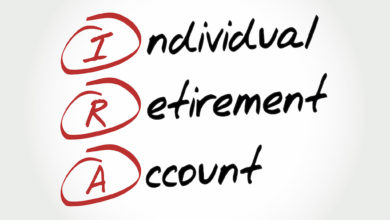Here’s What Gen X Should Know About Retiring


Retirement for Generation X, those born between 1965 and 1980, presents a unique set of challenges and opportunities. As this group approaches the traditional retirement age, it’s crucial to consider several factors that could influence their financial future. Here’s a comprehensive guide that highlights what Gen X should know about retiring.
Eye the Generational Wealth Transfer
 One of the most significant opportunities for Gen X is the anticipated transfer of wealth from the Baby Boomer generation. This transition, estimated to be in the trillions, could provide Gen Xers with financial leverage. However, relying solely on an inheritance can be risky. It’s wise to account for this potential windfall in your financial planning but not to depend on it entirely.
One of the most significant opportunities for Gen X is the anticipated transfer of wealth from the Baby Boomer generation. This transition, estimated to be in the trillions, could provide Gen Xers with financial leverage. However, relying solely on an inheritance can be risky. It’s wise to account for this potential windfall in your financial planning but not to depend on it entirely.
Plan for a Long Retirement
With advances in healthcare and an emphasis on wellness, Gen X can expect to live longer in retirement than previous generations. This longevity requires careful planning. Ensuring that your savings can sustain you through potentially three decades of retirement is essential. Consider strategies like diversifying your investments and creating a sustainable withdrawal plan to stretch your resources.
The 401(k) Generation and Catch-Up Contributions
 Gen X is often referred to as the 401(k) generation due to the prevalence of this retirement savings vehicle during their working years. If you’re part of this group, you should be leveraging the opportunity to make catch-up contributions if you’re over 50. This allows you to invest more in your 401(k), potentially increasing your retirement nest egg significantly.
Gen X is often referred to as the 401(k) generation due to the prevalence of this retirement savings vehicle during their working years. If you’re part of this group, you should be leveraging the opportunity to make catch-up contributions if you’re over 50. This allows you to invest more in your 401(k), potentially increasing your retirement nest egg significantly.
Timing Your Retirement
The decision of when to retire is deeply personal and should factor in your financial readiness, health, and lifestyle goals. Many Gen Xers may need to work longer than they initially planned, either to continue accruing benefits or to maintain a certain standard of living. Evaluating your situation with a financial professional can help clarify the best course of action.
Compensating for Lost Income
 Some Gen Xers have faced career disruptions, whether due to economic downturns or personal reasons. It’s crucial to address any gaps in income by boosting savings or investing in growth-oriented assets. Additionally, consider other income streams, such as part-time work or monetizing a hobby, to supplement your retirement funds.
Some Gen Xers have faced career disruptions, whether due to economic downturns or personal reasons. It’s crucial to address any gaps in income by boosting savings or investing in growth-oriented assets. Additionally, consider other income streams, such as part-time work or monetizing a hobby, to supplement your retirement funds.
Modified Social Security Calculation
When estimating Social Security benefits, it’s important for Gen X to be aware of potential changes in the system and how these could impact their expected income. Using a modified calculation can give a more realistic picture of what benefits will look like, helping you adjust your retirement strategy accordingly.
Accounting for Inflation
Inflation is a critical factor that can erode purchasing power over time. Gen X should incorporate inflation into their retirement planning to ensure they can maintain their desired lifestyle. Consider investments that historically outpace inflation, such as equities or real estate, as part of your portfolio.
Planning is Essential for Gen X
 Ultimately, proactive planning is key to a secure retirement for Generation X. Assessing your current financial situation, understanding where you stand, and implementing strategies to strengthen your position are crucial steps.
Ultimately, proactive planning is key to a secure retirement for Generation X. Assessing your current financial situation, understanding where you stand, and implementing strategies to strengthen your position are crucial steps.
To ensure your retirement planning is on track, consider consulting with an IFW financial professional to assess your retirement plan. It’s also a good time to take stock of your current financial situation and adjust your savings and investment strategy if necessary. Start planning for retirement now, if you haven’t already, to ensure a comfortable future. And finally, share this article with other Gen Xers who might benefit from this information.
By focusing on these areas, you can better prepare for a fulfilling and financially secure retirement.
After 18 years as President and Founder of TheaterMania and OvationTix, Darren is excited to be on a new journey as the President and Co-Founder of The Institute of Financial Wellness. (The IFW)
For consumers, The IFW provides financial education, resources, and services that help people live their best life.
For Financial Professionals, The IFW provides proven sales and marketing systems, state-of-the-art technology, training, and support to financial professionals nationwide. The IFW helps financial professionals grow their practices to the next level! IFW Certified Financial Professionals are an elite group of professionals that, together with the IFW, help people succeed financially and live their best lives.






